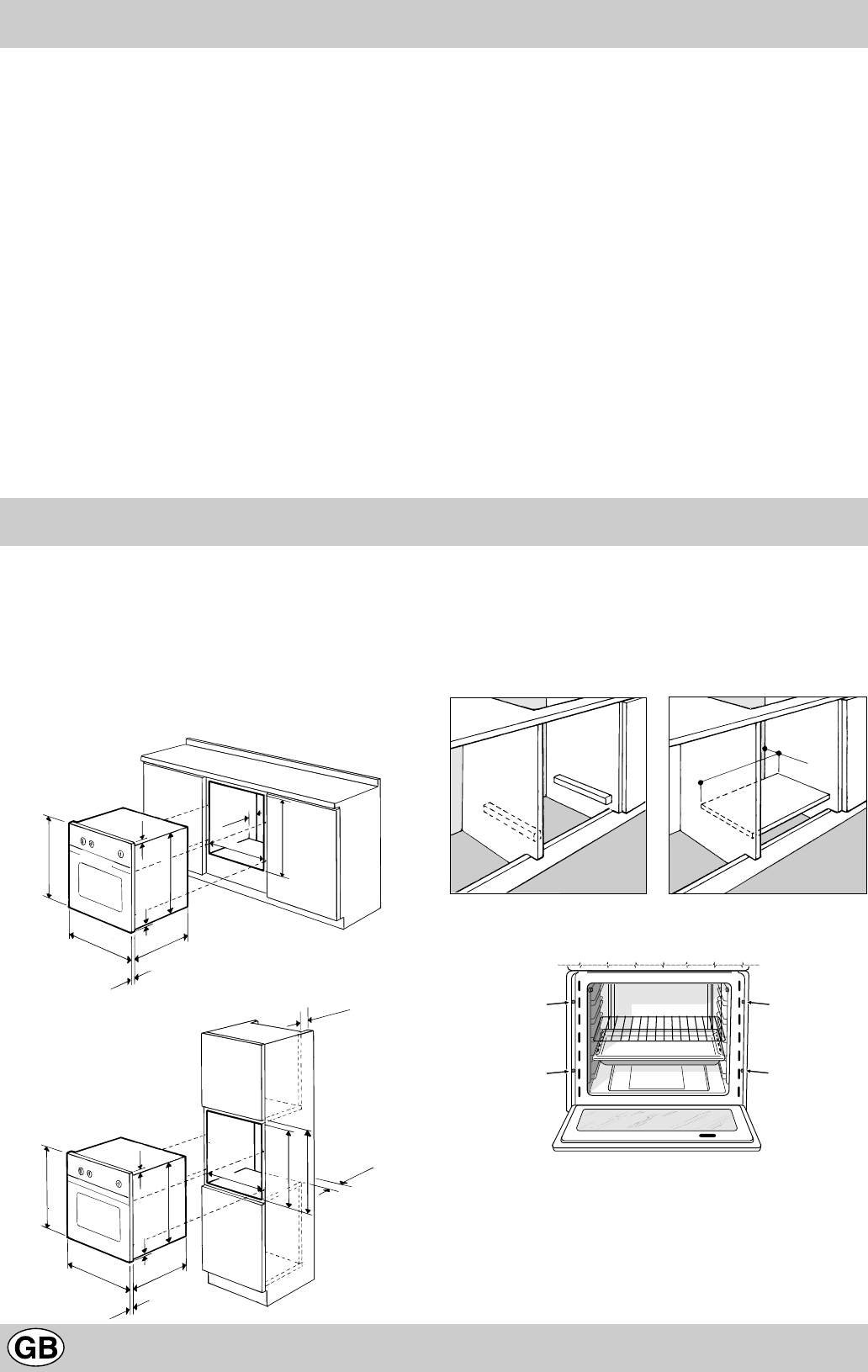
6
- Allowing power supply cords for small appliances to come into
contact with the hot parts of the appliance;
- Exposing the appliance to atmospheric agents (rain, sun);
- Using the oven for storage purposes;
- Using flammable liquids near the appliance;
- Using adaptors, multiple sockets and/or extension cords;
- Attempting to install or repair the appliance without the
assistance of qualified personnel.
Qualified personnel must be contacted in the following
cases:
- Installation (following the manufacturer's instructions);
- When in doubt about operating the appliance;
- Replacing the electrical outlet when it is not compatible with
the plug for the appliance.
Service Centres authorized by the manufacturer must be
contacted in the following cases:
- If in doubt about the soundness of the appliance after removing
it from the packaging;
- If the power supply cord has been damaged or needs to be
replaced;
- If the appliance breaks down or functions poorly; ask for original
spare parts.
It is a good idea to do the following:
- Only use the appliance to cook food, nothing else;
- Check the soundness of the appliance after it has been
unpacked;
- disconnect the appliance from the electrical mains if it is not
functioning properly and before cleaning or performing
maintenance;
- When the appliance is not used for an extended period of
time, cut off the supply of power and close the gas cock (if
present);
- Use cooking gloves to place cookware in the oven or when
removing it;
- Always grasp the oven door in the centre because the ends
may be hot due to the escape of hot air;
- Make sure that the control knobs are on the “•”/”o” setting
when the appliance is not in use;
- Cut the power supply chord after disconnecting it from the
mains when you decide not to use the appliance any longer.
• The manufacturer will not be held liable for any damages that
might arise out of incorrect installation or improper, incorrect
or unreasonable use of the appliance.
Installation
Important: The power supply to the appliance must be
cut off before any adjustments or maintenance work is
done on it.
Installation of Built-in Ovens
In order to insure that the built-in appliance functions
properly, the cabinet containing it must be appropriate.
The figure below gives the dimensions of the cutout for
installation under the counter or in a cabinet wall unit.
595 mm.
595 mm.
20 mm.
543 mm.
5 mm.
567 mm.
23 mm.
593 mm.
45 mm.
558 mm.
595 mm.
595 mm.
20 mm.
543 mm.
5 mm.
567 mm.
23 mm.
575-585 mm.
558 mm.
595 mm.
45 mm.
min.
45 mm.
min.
In order to ensure adequate ventilation, the back panel of
the cabinet must be removed. Installing the oven so that it
rests on two strips of wood is preferable.
In the case where the oven rests on a continuous, flat
surface, there must be an aperture of at least 45 x 560
mm.
560 mm.
45 mm.
To fasten the oven to the cabinet, open the door of the
oven and fasten it by inserting the 4 wood screws into the
4 holes locate on the perimeter of the frame.
The panels of the adjacent cabinets must be made of
heat resistant material. In particular, cabinets with a veneer
exterior must be assembled with glues able to withstand
temperatures of up to 100°C.
In compliance with current safety standards, contact with
the electrical parts of the oven must not be possible once
it has been installed.
All parts which ensure safe operation of the appliance must










